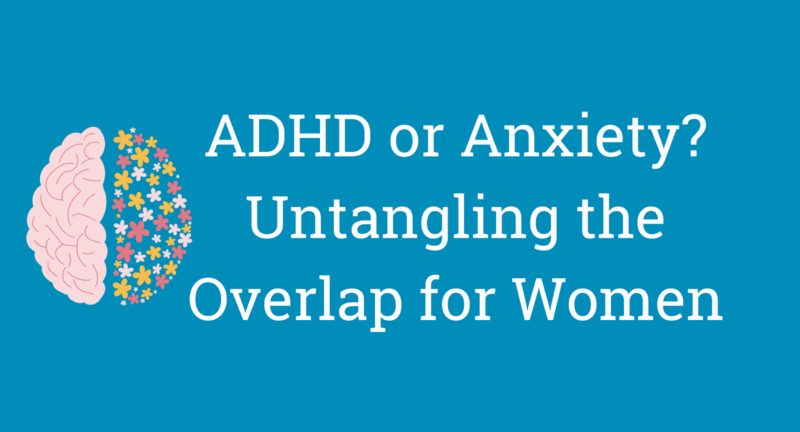
What Is CBT and How Does CBT Help with Anxiety?
Anxiety disorders are extremely common. About 40 million American adults are affected by an anxiety disorder each year. Anxiety disorders can profoundly impact the quality of your life, and even though anxiety is treatable, almost 40% of those with anxiety don’t get the treatment they need. Here at Next Step 2 Mental Health, we know that anxiety can affect many aspects of your life, but with treatment, it’s possible to thrive. Our compassionate team consists of board-certified psychiatrists and licensed psychologists so you can get the anxiety treatment you need, whether that’s medication, therapy, cognitive behavioral therapy (CBT) — or a combination.
If you’re starting to explore your anxiety treatment options, you might wonder what CBT is. In this article, we’ll explore what CBT is and how it fits into your anxiety treatment plan.
What is CBT?
“One of the best treatments for anxiety is cognitive behavioral therapy,” Dr. Dan Guy explains in his course on anxiety and ADHD.
But what is CBT?
CBT is a psychotherapeutic treatment, and it’s used to treat several conditions. CBT can be used to treat anxiety, depression, phobias, and even eating disorders. Regardless of why you’re seeking CBT, it functions under the same principles: you’ll learn how to identify negative thought patterns that increase anxiety, how to change negative thought patterns, and how to make sense of an overwhelming issue by examining its smaller parts.
This therapy is designed to show how situations, automatic negative thoughts (ANTs), emotions (that form as a result of ANTs), physical feelings (that form from emotions), and actions (inspired by our emotions) are all connected. In other words, any thought you have about a particular problem directly affect your feelings about the event and how you feel physically and how you react in response. If you can change your thought patterns and avoid the negative thought patterns, you can start to overcome overwhelming thoughts and situations.

To recap: CBT operates under the theory that psychological problems are based (in part) on faulty thinking batters and unhelpful behaviors. CBT is designed to interrupt this cycle, to reframe thinking patterns and establish more helpful behaviors for coping.
How Does CBT Work?
CBT can help treat your anxiety by focusing on how you think and act but what exactly does that look like in practice? Here’s how CBT works:
1. Identify Negative Thoughts
“To manage anxiety, you’ve got to deal with the ANTs,” Dr. Guy says. The ANTs, of course, refer to automatic negative thoughts, and that’s where therapy starts. You’ll first have to identify the negative (or maladaptive) thoughts.
As you start to explore your negative thought patterns, you’ll also learn how those thoughts contribute to your behaviors.
For instance, if you have social anxiety, simply thinking about giving a speech can cause physical symptoms such as increased heart rate — and this can influence the actions you take. Identifying all of your negative thoughts is a vital component of your therapy and your overall progress.
2. Practice New Skills
Now it’s time to get rid of the ANTs! Once you’ve identified your negative thought patterns, you’ll be able to start implementing new skills. Your specific skills will vary depending on what your specific triggers are.
The key though is that the skills and strategies you learn during CBT sessions can be applied to real-life situations.
3. Monitor Your Progress
Through your journey, you can monitor your progress by setting goals. For example, if social anxiety leads you to avoid all social gatherings, your first goal likely isn’t going to be karaoke night a friend’s house. Instead, you may set smaller goals such as to practice having a quiet conversation with just one or two friends.
Goals aren’t arbitrary. They are specific, realistic, and — most importantly — easily measured. This means you can see and track your own progress easily.
CBT Doesn’t Have to Stand Alone
One of the benefits of CBT is that you don’t have to choose between CBT or other treatments. We can combine CBT with other anxiety treatments, such as lifestyle changes, anxiety prevention strategies, and medication management.
Get the Anxiety Relief You Need
Here at Next Step 2 Mental Health, we want to help you feel better. That’s why we take a multidisciplinary approach when it comes to managing anxiety. From medication management to therapy (including CBT) to online courses, we are with you every step of your journey.
Give us a call at our Louisville, Kentucky office at 502-339-2442, or send us a message to request more information.
You can also request an appointment with our convenient scheduling tool here.
Related Posts
ADHD or Anxiety? Untangling the Overlap for Women
Can’t remember why you walked into the room—again? Feel like your mind’s always...
9 New Year’s Resolutions that Put Your Mental Health First
2021 is right around the corner ... finally! Are you making resolutions this...


